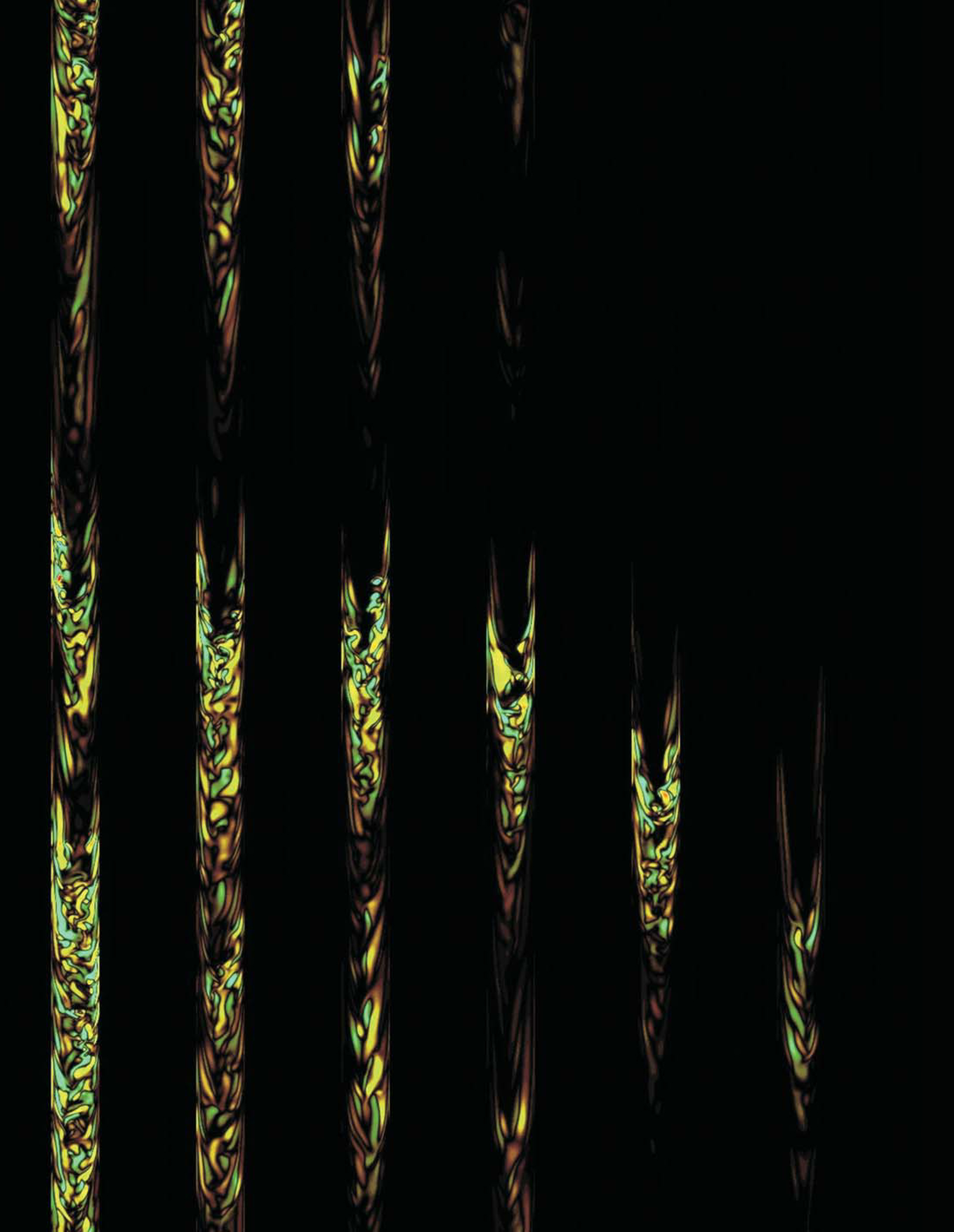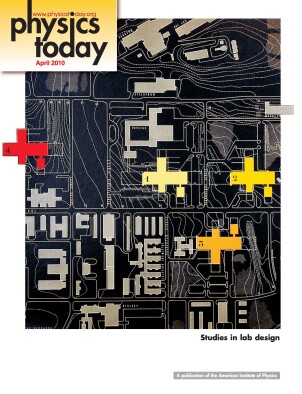Taming turbulence
DOI: 10.1063/1.3397053
Turbulence can be expensive: Compared with smooth, laminar flow, turbulent flow requires significantly more energy to produce the same throughput. And in systems from oil pipelines to arteries, the transition from laminar to turbulent flow can produce large and potentially damaging pressure and velocity fluctuations. The onset of turbulence is poorly understood, yet the benefits from learning to reduce turbulence or delay its triggering are great.
Many strategies, both active and passive, have been proposed for reducing turbulent drag, but they typically require more energy than is saved. Björn Hof and colleagues from the Max Planck Institute for Dynamics and Self-Organization and from Harvard University have now demonstrated, through simulation and experiment, a successful technique to collapse turbulence and reestablish laminar flow. Working in the regime of intermittent turbulence—characterized by localized “puffs” of turbulent eddies within otherwise laminar flow—the team found that the turbulence is sustained by inflection points in the velocity distribution at the boundary between the turbulent and laminar regions. When Hof and coworkers introduced a steady stream of additional turbulence into the flow, such boundaries disappeared, the inflection points were removed, and all the turbulence decayed.
Simulations (using a velocity forcing term instead of a control stream) supported that result. From left to right, these images track a simulated puff’s evolution. The flows go from the top of the page to the bottom. Once the forcing is introduced at the puff’s trailing edge in the third image, the turbulent eddies start to dissipate. The researchers found experimentally that the energy cost of implementing their technique is one-fifth the energy saved by eliminating turbulence. (B. Hof et al., Science 327 , 1491, 2010 http://dx.doi.org/10.1126/science.1186091
To submit candidate images for Back Scatter, visit http://www.physicstoday.org/backscatter.html

(image courtesy of Marc Avila, MPIDS.)





